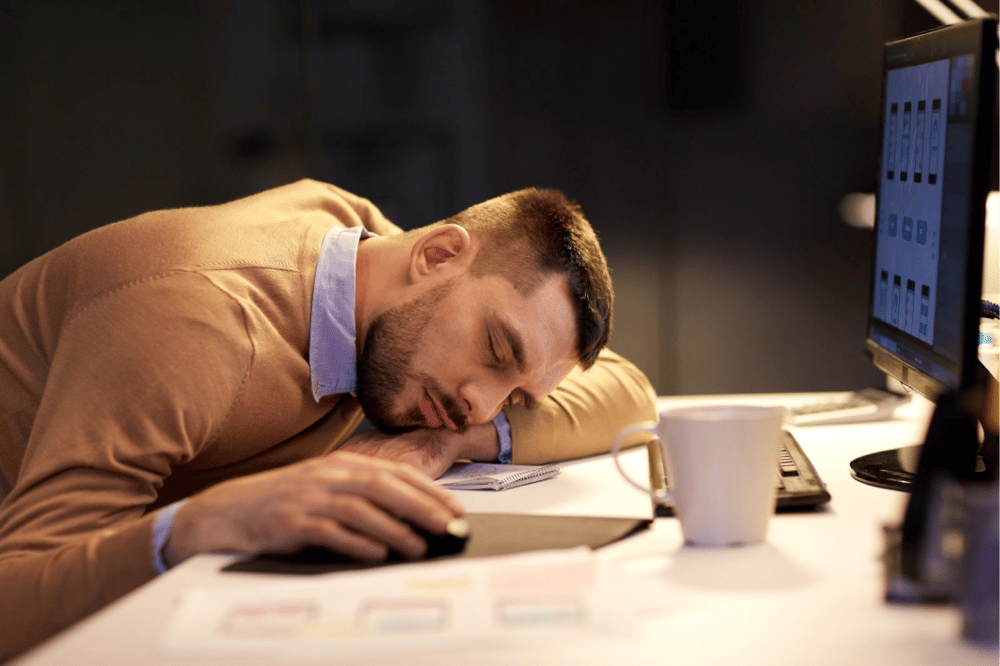Testosterone levels naturally decline in men after age 40, but it's not the only reason for fatigue and low energy. Myths around testosterone often lead to quick fixes like testosterone replacement therapy (TRT), while lifestyle factors—poor sleep, stress, diet, and lack of exercise—play a major role.
Testosterone & Tiredness: Myths About Men’s Health Over 40
Written by Sumit Kaushik

If you're a man aged 40+ and these symptoms sound familiar, you're not alone. Many men attribute this physical and mental sluggishness to aging—but often there is a silent thief hiding in the background: testosterone decline.
Fatigue. Low motivation. Weight gain. Insomnia. Irritability.
But here is the reality: although testosterone does play a part, it's not the entire story, and not all fatigue is hormonal. In this blog, we separate fact from fiction, dispelling the most prevalent myths about testosterone and energy in men aged over 40—and what you can do about it.
Testosterone: The Male Hormone in Decline
Testosterone is the hormone responsible for:
Muscle mass
Energy levels
Libido
Bone density
Mood control
Cognitive function
Testosterone naturally declines at around 30–35 years of age at a rate of 1% every year. By the time a man reaches 40 or 50, most men will experience symptoms of low T—but this decline is not always the culprit of fatigue.
Myth #1: Low Testosterone Is Always the Culprit of Fatigue
Reality: Dozens of reasons can cause fatigue—stress, sleep deprivation, diet, depression, thyroid disease, or vitamin D deficiency. Testosterone is just a piece of a far larger health puzzle.
Pro tip: Don't dash to testosterone therapy first. Order a complete set of tests such as thyroid hormones (TSH, T3, T4), cortisol, B12, and iron.
Myth #2: Eating More Protein Will Boost Your Testosterone
Reality: Protein is vital, but excessive protein and a lack of healthy fats can decrease testosterone. Cholesterol (from healthy fats) is used by the body to produce testosterone.
Improved approach:
Pair testosterone-favorable foods such as:
Eggs (with yolks)
Avocados
Brazil nuts (selenium-rich)
Tuna or salmon
Pomegranates
Myth #3: Testosterone Replacement Therapy (TRT) Is a Magic Cure
Reality: TRT works for some, but it's not a magic pill. It can have side effects such as acne, red blood cell increase, or decreased fertility. It also needs lifelong dedication and monitoring.
Natural remedies—such as resistance training, good sleep, and stress control—can naturally increase testosterone in most men without drugs.
Myth #4: Sleep Doesn't Affect Testosterone That Much
Fact: Sleep is one of the most powerful natural testosterone provokers. Research indicates that men sleeping less than 5 hours per night might have 10–15% lower T levels than men sleeping 7–8 hours.
Most testosterone secretion takes place during deep sleep (primarily REM cycles).
Myth #5: Cardio is Better than Strength Training for Energy and Hormones
Reality: As wonderful as cardio is for the heart, heavy compound resistance training (squat, deadlift, bench press, etc.) actually produces a massive increase in testosterone levels in men.
Best formula: Mix 30 minutes of moderate cardio, 3 times a week, with hard strength training 2–3 times a week.
Myth #6: Only TRT Can Fix Low T—Supplements Are Worthless
Reality: Several natural supplements do indeed work, particularly when used in conjunction with lifestyle changes. Some evidence-based choices include:
Ashwagandha – Reduces cortisol levels and may boost testosterone
Zinc – Essential for T production (particularly after training)
Vitamin D3 – More of a hormone than a vitamin; associated with healthy T levels
Magnesium – Supports sleep and free testosterone levels
Note: Always consult your doctor before initiating any supplement routine.
Myth #7: Losing Testosterone Means Losing Masculinity
Reality: Masculinity has nothing to do with testosterone. It's about energy, presence, clarity, strength, and vitality. Testosterone is crucial—but it doesn't determine who you are.
Taking the reins of your health at 40 is about creating a lifestyle that gets you the support physically, mentally, and emotionally—not merely pursuing a number.
Naturally Boosting Energy & Testosterone After 40
* Lift Heavy Objects (resistance training 2–3 times a week)
* Deep Sleep First (7–8 hours, no screens before bed)
* Manage Stress (meditation, journaling, nature walks)
* Eat Smart (high fat, moderate protein, low sugar)
* Get Sunlight (or supplement Vitamin D3)
* Stay Connected (social support boosts longevity & mental health)
* Cut Down Alcohol (particularly beer – associated with estrogen dominance)
Conclusion: The Truth Is in the Balance
Testosterone is essential—but it's not the devil or hero it's so frequently portrayed. The true villain is misinformation, couch surfing, stress overload, and neglect of self-care.
If you are a man over 40 who is tired, muzzy-headed, or lethargic, don't put up with it. Have yourself investigated. Educate yourself. And above all, create a way of life that works with your biology, not against it.